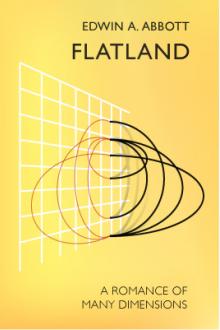Lorna Doone: A Romance of Exmoor, R. D. Blackmore [websites to read books for free txt] 📗

- Author: R. D. Blackmore
Book online «Lorna Doone: A Romance of Exmoor, R. D. Blackmore [websites to read books for free txt] 📗». Author R. D. Blackmore
'I trusted her so much,' said Lorna, in her old ill-fortuned way; 'and look how she has deceived me! That is why I love you, John (setting other things aside), because you never told me falsehood; and you never could, you know.'
'Well, I am not so sure of that. I think I could tell any lie, to have you, darling, all my own.'
'Yes. And perhaps it might be right. To other people besides us two. But you could not do it to me, John. You never could do it to me, you know.'
Before I quite perceived my way to the bottom of the distinction—although beyond doubt a valid one—Gwenny came back with a leathern bag, and tossed it upon the table. Not a word did she vouchsafe to us; but stood there, looking injured.
'Go, and get your letters, John,' said Lorna very gravely; 'or at least your mother's letters, made of messages to you. As for Gwenny, she shall go before Lord Justice Jeffreys.' I knew that Lorna meant it not; but thought that the girl deserved a frightening; as indeed she did. But we both mistook the courage of this child of Cornwall. She stepped upon a little round thing, in the nature of a stool, such as I never had seen before, and thus delivered her sentiments.
'And you may take me, if you please, before the great Lord Jeffreys. I have done no more than duty, though I did it crookedly, and told a heap of lies, for your sake. And pretty gratitude I gets.'
'Much gratitude you have shown,' replied Lorna, 'to Master Ridd, for all his kindness and his goodness to you. Who was it that went down, at the peril of his life, and brought your father to you, when you had lost him for months and months? Who was it? Answer me, Gwenny?'
'Girt Jan Ridd,' said the handmaid, very sulkily.
'What made you treat me so, little Gwenny?' I asked, for Lorna would not ask lest the reply should vex me.
'Because 'ee be'est below her so. Her shanna' have a poor farmering chap, not even if her were a Carnishman. All her land, and all her birth—and who be you, I'd like to know?'
'Gwenny, you may go,' said Lorna, reddening with quiet anger; 'and remember that you come not near me for the next three days. It is the only way to punish her,' she continued to me, when the maid was gone, in a storm of sobbing and weeping. 'Now, for the next three days, she will scarcely touch a morsel of food, and scarcely do a thing but cry. Make up your mind to one thing, John; if you mean to take me, for better for worse, you will have to take Gwenny with me.
'I would take you with fifty Gwennies,' said I, 'although every one of them hated me, which I do not believe this little maid does, in the bottom of her heart.'
'No one can possibly hate you, John,' she answered very softly; and I was better pleased with this, than if she had called me the most noble and glorious man in the kingdom.
After this, we spoke of ourselves and the way people would regard us, supposing that when Lorna came to be her own free mistress (as she must do in the course of time) she were to throw her rank aside, and refuse her title, and caring not a fig for folk who cared less than a fig-stalk for her, should shape her mind to its native bent, and to my perfect happiness. It was not my place to say much, lest I should appear to use an improper and selfish influence. And of course to all men of common sense, and to everybody of middle age (who must know best what is good for youth), the thoughts which my Lorna entertained would be enough to prove her madness.
Not that we could not keep her well, comfortably, and with nice clothes, and plenty of flowers, and fruit, and landscape, and the knowledge of our neighbours' affairs, and their kind interest in our own. Still this would not be as if she were the owner of a county, and a haughty title; and able to lead the first men of the age, by her mind, and face, and money.
Therefore was I quite resolved not to have a word to say, while this young queen of wealth and beauty, and of noblemen's desire, made her mind up how to act for her purest happiness. But to do her justice, this was not the first thing she was thinking of: the test of her judgment was only this, 'How will my love be happiest?'
'Now, John,' she cried; for she was so quick that she always had my thoughts beforehand; 'why will you be backward, as if you cared not for me? Do you dream that I am doubting? My mind has been made up, good John, that you must be my husband, for—well, I will not say how long, lest you should laugh at my folly. But I believe it was ever since you came, with your stockings off, and the loaches. Right early for me to make up my mind; but you know that you made up yours, John; and, of course, I knew it; and that had a great effect on me. Now, after all this age of loving, shall a trifle sever us?'
I told her that it was no trifle, but a most important thing, to abandon wealth, and honour, and the brilliance of high life, and be despised by every one for such abundant folly. Moreover, that I should appear a knave for taking advantage of her youth, and boundless generosity, and ruining (as men would say) a noble maid by my selfishness. And I told her outright, having worked myself up by my own conversation, that she was bound to consult her guardian, and that without his knowledge, I would come no more to see her. Her flash of pride at these last words made her look like an empress; and I was about to explain myself better, but she put forth her hand and stopped me.
'I think that condition should rather have proceeded from me. You are mistaken, Master Ridd, in supposing that I would think of receiving you in secret. It was a different thing in Glen Doone, where all except yourself were thieves, and when I was but a simple child, and oppressed with constant fear. You are quite right in threatening to visit me thus no more; but I think you might have waited for an invitation, sir.'
'And you are quite right, Lady Lorna, in pointing out my presumption. It is a fault that must ever be found in any speech of mine to you.'
This I said so humbly, and not with any bitterness—for I knew that I had gone too far—and made her so polite a bow, that she forgave me in a moment, and we begged each other's pardon.
'Now, will you allow me just to explain my own view of this matter, John?' said she, once more my darling. 'It may be a very foolish view, but I shall never change it. Please not to interrupt me, dear, until you have heard me to the end. In the first place, it is quite certain that neither you nor I can be happy without the other. Then what stands between us? Worldly position, and nothing else. I have no more education than you have, John Ridd; nay, and not so much. My birth and ancestry are not one whit more pure than yours, although they may be





Comments (0)